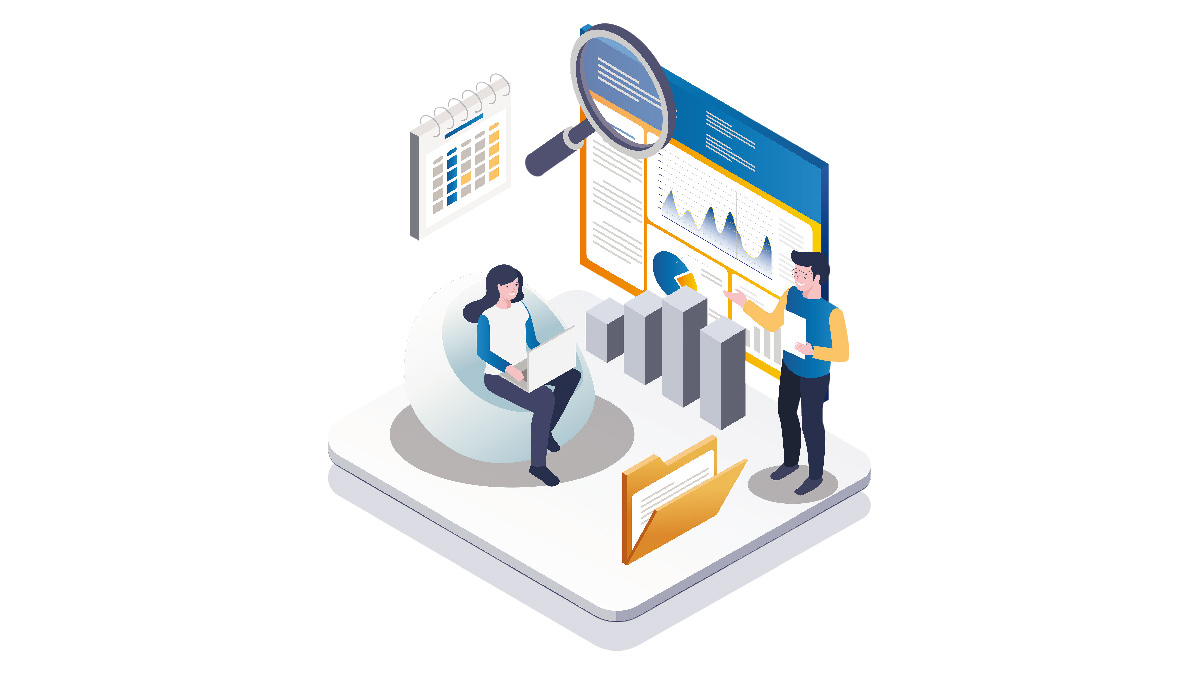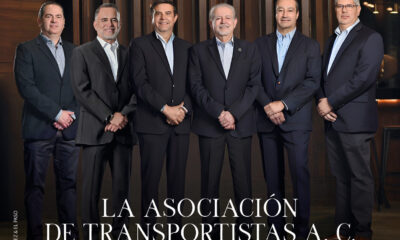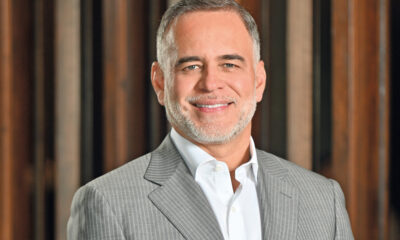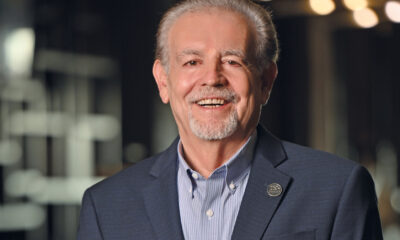Finanzas
Cómo ser emprendedor
Publicado
3 años antesel
Por
Staff
“Si el hacha pierde su filo, y no se vuelve a afilar, hay que golpear con más fuerza. El éxito radica en la acción sabia y bien ejecutada”
Eclesiastés 10:10
Por: Cultura Financiera
Para poder ser una persona emprendedora, lo más importante está en lo que puedes desarrollar y no tanto en lo que eres actualmente. Somos lo que somos y estamos donde estamos por las decisiones que hemos tomado en el pasado.
Ningún logro es accidental. Ninguna persona que haya alcanzado la cima de una montaña diría: “No tengo idea de cómo llegar a la cima de la montaña. Un día desperté, y aquí estaba”. Ninguna persona que alguna vez haya hecho algo significativo lo hizo sin un gran esfuerzo. Cualquier colina que se escale debe hacerse deliberada, consistente y voluntariamente. Es totalmente intencional.
7 claves para ser emprendedora
* Ser antes que hacer: El ser se desarrolla por los principios con los que optaron por vivir. El hacer es el resultado de lo que te ha convertido en el ser, pero ¿a qué nos referimos con ser?, específicamente a desarrollar nuestro carácter, el carácter es la motivación interna para hacer lo correcto, porque es correcto hacer lo correcto.
* Crecer todos los días: Lo primero que debes hacer para crecer es evaluar tus debilidades y una acción específica para mejorar esa área. Asume la responsabilidad de esas áreas y no pongas excusas. Detecta posibles obstáculos y estrategias para crecer a través de persona, libros o actividades. La pregunta clave es: ¿de quién o qué puedo aprender?
* Estar dispuesto a sacrificarte: Cada dificultad que tienes puede ser aprovechada para tu beneficio. Tu respuesta a esa dificultad o error será determinante para cambiar el resultado. Cuando eliges reaccionar de manera equivocada a una inquietud, dificultad o error del pasado, dejarás ir una oportunidad para madurar en algún aspecto de su vida, por otro lado, si escoges responder correctamente a una dificultad, los tiempos difíciles serán transformados en lecciones muy valiosas.
* Aclarar tus prioridades: ¿Acerca de qué trata la vida? No es acerca de escribir grandes libros, amasar una gran fortuna, alcanzar el poder. Es acerca de amar y ser amado. Es acerca de disfrutar su comida y sentarse al sol, en lugar de almorzar corriendo y regresar de prisa a la oficina. Es para saborear la belleza de los momentos que no perduran, Es acerca de apreciarlos, en vez de perderlos por estar tan ocupados.
* Aclarar y balancear tus metas: La mayoría de la gente pasa su vida como una “generalidad ambulante”, tiene sólo ideas vagas de a dónde van, cómo llegarán ahí o qué harán cuando lleguen. Necesitamos estar interesados en el futuro. Es ahí donde vamos a pasar el resto de nuestras vidas. Si tus metas valen la pena y es lo que te gusta hacer, esto te va a proveer de tu más grande motivación.
* Aprender a cuidar tus recursos: Lo primero que tenemos que entender es que somos sólo administradores de los recursos que poseemos. Lo segundo es reconocer los tres más grandes recursos con que contamos: relaciones, tiempo y dinero. Lo tercero es aprender cómo cuidar esos recursos, a las personas hay que tratarlas bien, al tiempo hay que aprovecharlo bien y el dinero hay que administrarlo bien.
* Estar preparado para cuando las oportunidades lleguen: Los sucesos específicos de la vida son buenos para tomar decisiones, pero es el proceso de cambio y crecimiento lo que tiene valor perdurable. Si queremos pasar al siguiente nivel, tenemos que luchar por mejorar continuamente.
Atrévete a disfrutar del proceso, así como un árbol comienza con tan solo una semilla, y es necesario su crecimiento para la obtención de su fruto, así también nuestra vida necesita madurar en el día a día, si queremos estar preparados para el momento en que lleguen los grandes desafíos.
“Pon en manos del Señor todas tus obras, y tus proyectos se cumplirán”
Proverbios 16:3
How to be an entrepreneur
“If the ax loses its edge and is not sharpened again, you must strike harder. Success lies in wise and well-executed action.”
Ecclesiastes 10:10
By: Cultura Financiera
For the entrepreneur, the most important thing is what you can develop and not so much what you currently are. We are what we are, and we are where we are because of the decisions we have made in the past.
No achievement is accidental. No person who has reached the top of a mountain would say, “I have no idea how to get to the top. One day I woke up, and here it was.” No person who has ever done anything significant did it without much effort. Any hill climbed must be done deliberately, consistently, and voluntarily. It is intentional.
Seven keys to entrepreneurship
* Being before doing: Being is developed by the principles you choose to live. Doing is the result of what has made you the being, but what do we mean by being, specifically to develop our character? Character is the internal motivation to do the right thing because it is right to do it.
* Grow every day: The first thing you must do to grow is to evaluate your weaknesses and take specific action to improve that areas. Take responsibility for those areas and don’t make excuses. Detect possible obstacles and strategies to grow through people, books or activities. The critical question is: from whom or what can I learn?
* Be willing to sacrifice: Every difficulty you have can be used to your advantage. Your response to that difficulty or mistake will be decisive in changing the outcome. When you choose to react the wrong way to a past concern, problem or error, you will miss an opportunity to mature in some aspect of your life; on the other hand, if you choose to respond correctly to difficulty, it will be transformed into valuable lessons.
* Clarify your priorities: What is life about? It’s not about writing great books, amassing a great fortune, or attaining power. It’s about loving and being loved. It’s about enjoying your food and sitting in the sun instead of rushing through lunch and rushing back to the office. It’s about savoring the beauty of the moments that don’t last; It’s about cherishing them instead of missing them or being so busy.
* Clarify and balance your goals: Most people spend their lives as a “walking generality,” having only vague ideas of where they are going, how they will get there, or what they will do when they get there. We need to be interested in the future. That is where we are going to spend the rest of our lives. If your goals are worthwhile and it’s what you love to do, this will provide you with your greatest motivation.
* Learn to take care of your resources: We first need to understand that we are only stewards of our resources. The second thing is to recognize our three most significant resources: relationships, time and money. The third thing is to learn how to take care of those resources; people must be treated well, time must be used well, and money must be managed well.
* Be prepared for when opportunities arrive: Specific life events are suitable for making decisions, but the process of change and growth has lasting value. If we want to move to the next level, we have to strive for continuous improvement.
Dare to enjoy the process, just as a tree starts with just a seed, and its growth is necessary to obtain its fruit, so our life needs to mature daily if we want to be prepared for the moment when the significant challenges arrive.
“Put all your works into the hands of the Lord, and your plans will be fulfilled.”
Proverbs 16:3
Te puede interesar

¿Alguna vez has sentido que el dinero se te escurre de las manos como arena? En esta vida, entre los deseos y las tentaciones del consumo, a veces parece imposible mantener nuestras finanzas en orden. Pero queremos compartirte una verdad poderosa que nos puede liberar y bendecir: el arte de ahorrar.
La palabra “ahorro” tiene una historia muy interesante. Viene del árabe “hurr”, que significa “libre”. Originalmente, “ahorrar” significaba liberar a un esclavo o a alguien de una carga. ¡Qué revelador! Cuando ahorramos hoy, no solo estamos guardando dinero, sino que nos estamos liberando de las ataduras financieras que nos impiden alcanzar nuestras metas personales.
Ahorrar no es ser tacaño, ¡para nada! Es desarrollar una actitud sabia y de buena administración. La Biblia nos lo enseña claramente: “El sabio ahorra para el futuro, pero el necio derrocha cuanto obtiene” (Proverbios 21:20)7. ¡Salomón sabía de lo que hablaba!
5 errores comunes que nos impiden ahorrar:
A menudo, sin darnos cuenta, cometemos ciertos errores que sabotean nuestros esfuerzos por ahorrar. ¡Identifiquémoslos para poder superarlos!
- No distinguir entre necesidades y deseos: Tendemos a gastar por impulso en lo que queremos, sin preguntarnos si realmente lo necesitamos. Una necesidad es un requisito legítimo para nuestro bienestar o el de nuestra familia, mientras que un deseo es algo que queremos sin respetar las consecuencias. Enfocarse en las necesidades básicas primero es fundamental.
- No tener un plan de gastos: Muchas veces, el dinero simplemente “desaparece” porque no sabemos en qué lo gastamos. No crear un presupuesto familiar y evaluar cada gasto es un error que nos impide ver dónde se va el dinero y dónde podemos ajustarnos.
- Comprar impulsivamente sin preguntar: ¿Cuántas veces hemos comprado algo porque nos gustó en el momento, sin considerar si lo necesitamos, si podemos pagarlo de contado, por qué lo queremos o cuándo podemos comprarlo? Esta falta de reflexión antes de gastar nos lleva a mucha frustración.
- No llevar registros confiables: Si no guardamos las notas de compra del mes o no registramos cada transacción, es imposible saber adónde se va nuestro dinero. Sin estos registros, no podemos identificar gastos innecesarios ni hacer los recortes necesarios.
- Vivir al día y no planificar para el futuro: Este es un error grave. Si no tenemos una reserva de dinero para gastos no planeados o no ahorramos para el mañana, nos volvemos vulnerables a las dificultades financieras. El sabio ahorra y construye para el futuro, mientras que el necio derrocha cuanto obtiene.
En un mundo donde la publicidad nos grita “¡quiero, quiero, quiero!” y el crédito fácil nos envuelve en planes de pago casi imposibles, el ahorro es un acto de rebeldía y sabiduría. Nos ayuda a evitar ser despilfarradores y a vivir dentro de nuestras posibilidades. Nuestros hijos y nietos nos lo agradecerán por ser un ejemplo de vida.
Recordemos el sabio consejo de M.F. Tupper: “Economía, la fábrica del pobre; el derroche, la trampa del rico”. Ya sea que tengamos mucho o poco, la sabiduría financiera es un principio que nos acerca a la libertad y a una vida más plena.
Saving to Flourish: 5 Common Mistakes
Do you feel like money is slipping away without you even realizing it? In a world filled with desires and consumer impulses, learning to save is not only necessary, but liberating.
Have you ever felt like money is slipping through your fingers like sand? In this life, between the desires and temptations of spending, it sometimes seems impossible to keep our finances in order. But we want to share with you a powerful truth that can free and bless us: the art of saving .
The word “thrift” has a very interesting history. It comes from the Arabic ” hurr, ” meaning “free“. Originally, “to save” meant to free a slave or someone from a burden. How revealing! When we save today, we’re not just putting money aside, we’re freeing ourselves from the financial shackles that prevent us from achieving our personal goals.
Saving isn’t about being stingy—not at all! It’s about developing a wise and good stewardship attitude. The Bible teaches us this clearly: “A wise man lays up money for the future, but a fool squanders everything he gets” (Proverbs 21:20). Solomon knew what he was talking about!
5 common mistakes that prevent us from saving:
We often make certain mistakes without realizing it that sabotage our savings efforts. Let’s identify them so we can overcome them!
- Failing to distinguish between needs and wants: We tend to spend impulsively on what we want, without asking ourselves if we really need it. A need is a legitimate requirement for our well-being or that of our family, while a want is something we want without regard for the consequences. Focusing on basic needs first is critical.
- Not having a spending plan: Often, money simply “disappears” because we don’t know how we spend it. Not creating a family budget and evaluating each expense is a mistake that prevents us from seeing where the money is going and where we can make adjustments.
- Impulse buying without question: How many times have we bought something because we liked it at the time, without considering whether we need it, whether we can pay for it in cash, why we want it, or when we can buy it? This lack of reflection before spending leads to a lot of frustration.
- Not keeping reliable records: If we don’t keep monthly purchase notes or record every transaction, it’s impossible to know where our money is going. Without these records, we can’t identify unnecessary expenses or make the necessary cuts.
- Living for the day and not planning for the future: This is a serious mistake. If we don’t have a reserve of money for unplanned expenses or don’t save for tomorrow, we become vulnerable to financial hardship. The wise save and build for the future, while the foolish squander everything they get.
In a world where advertising screams “I want, I want, I want!” and easy credit lulls us into almost impossible payment plans, saving is an act of rebellion and wisdom. It helps us avoid being wasteful and live within our means. Our children and grandchildren will thank us for being an example of life.
Tupper ‘s wise advice : “Economy is the poor man’s factory; waste is the rich man’s trap.” Whether we have much or little, financial wisdom is a principle that brings us closer to freedom and a more fulfilling life.
Finanzas
Vacaciones a la medida de tu cartera
Publicado
4 meses antesel
01/07/2025Por
Adriana Camino
Una buena planificación te permite disfrutar del presente y evitar preocupaciones futuras
Llegaron las vacaciones y con ellas la oportunidad de disfrutar, ya sea viajando o quedándote en casa, y para que este período no se convierta en una fuente de estrés financiero, te compartimos algunos consejos que te permitirán relajarte sin gastar de más.
1. Planea con anticipación
Si vas a salir de la ciudad, aprovecha las ofertas de temporada y adquiere con tiempo vuelos o paquetes turísticos. Investiga actividades gratuitas o de bajo costo en tu destino; muchas veces son igual de divertidas y enriquecedoras. Incluso si te quedas en casa, buscar opciones accesibles para pasear dentro de tu ciudad también puede ser una gran alternativa.
2. Cuida los pequeños gastos, pero sé flexible
Durante los paseos, especialmente en épocas de calor, es común que se nos antoje algo refrescante, sin embargo, estos pequeños gastos, que en apariencia son insignificantes, pueden acumularse rápidamente y convertirse en grandes cantidades.
Tener claro cuál es tu presupuesto para estos gastos es ideal, a la par que puedes implementar estrategias como llevar en algunas ocasiones tus propios snacks y bebidas, aunque puedes tener cierta flexibilidad según lo amerite la situación, así podrás evitar decisiones impulsivas y disfrutarás en el momento adecuado, sin sentirte limitado.
3. Prioriza experiencias sobre objetos
Si decides comprar algún suvenir, trata de no hacerlo en las zonas más turísticas, donde los precios suelen ser más elevados, evita comprar de más, no necesitas llevarle algo a todos tus conocidos. Invierte mejor en experiencias que realmente disfrutarás y recordarás, en lugar de en objetos que luego terminarán arrumbados en algún rincón.
4. Disfruta también en casa
Quedarte en casa puede ser igual de gratificante. Aprovecha para reconectar contigo y con tu familia: organiza una tarde de juegos, maratón de películas, tiempos de lectura, platicar mientras comparten una taza de té o café, etcétera. Estar en casa relajados y disfrutar de todo aquello que a veces la rutina acelerada no nos permite también es una bendición y estos momentos pueden convertirse en recuerdos inolvidables.
5. Piensa a futuro
No olvides que después de las vacaciones volveremos a la rutina y los gastos normales siguen necesitando ser cubiertos; todos aquellos gastos hechos con las tarjetas de crédito deberán de ser pagados o terminarás pagando mucho más en intereses, además, terminando las vacaciones, llegan los gastos del regreso a clases.
Por eso, una buena planificación no sólo te permite disfrutar del presente, sino también evitar preocupaciones futuras.
La clave está en organizarte y tomar decisiones conscientes para que el descanso no se traduzca en deudas innecesarias. ¡Felices vacaciones!
Vacations Tailored to Your Budget
Good planning allows you to enjoy the present and avoid future worries.
Vacation time is here bringing with it the opportunity to enjoy yourself, whether you’re traveling or staying at home. To make sure this period doesn’t become a source of financial stress, here are some tips to help you relax without overspending:
1. Plan Ahead
If you’re planning to leave town, take advantage of seasonal deals and book your flights or travel packages early. Look into free or low-cost activities at your destination—these can often be just as fun and enriching. Even if you’re staying home, exploring affordable options in your own city can be a great alternative.
2. Watch the Small Expenses—but Stay Flexible
While out and about—especially in hot weather—it’s common to crave something refreshing. But these small, seemingly harmless purchases can add up quickly.
Having a clear budget for these expenses is ideal. You can also bring your own snacks and drinks at times, while still allowing for some flexibility depending on the situation. This way, you’ll avoid impulse decisions and enjoy treats when the time is right—without feeling restricted.
3. Prioritize Experiences Over Objects
If you decide to buy a souvenir, try not to do so in tourist-heavy areas where prices are inflated. Avoid overbuying—there’s no need to get something for everyone you know. Invest in experiences you’ll truly enjoy and remember, rather than in items that might end up forgotten in a drawer.
4. Enjoy Time at Home Too
Staying home can be just as rewarding. Take the opportunity to reconnect with yourself and your family—organize a game night, a movie marathon, reading time, or simple conversations over tea or coffee.
Relaxing at home and enjoying the little things we often miss in our busy routines is a gift—and these moments can become unforgettable memories.
5. Think Ahead
Don’t forget that after the holidays, normal life—and expenses—resume. Credit card charges will need to be paid, and back-to-school costs are just around the corner.
That’s why good planning doesn’t just help you enjoy the moment—it also helps you avoid future stress.
The key is to stay organized and make conscious decisions, so your time off doesn’t turn into unnecessary debt.
Happy holidays!

Cuando descubrí que podía hacer muchas cosas al mismo tiempo y ser exitosa en todas, ya nada me detuvo. Siendo hija de Dios, y con habilidades para vender descubrí que ser Emprendedora era una de las grandes bendiciones que se me habían dado a manos llenas.
Como a toda mujer le gusta gastar, un día me frustré tanto por la mala economía de mi cartera, que le pedí al Espíritu Santo un negocio. Y saben que paso me lo dio… al estudiar las escrituras, sobre todo proverbios 31 me di cuenta que puedo servir a Dios, a mi familia, comunidad y al mismo tiempo tener mi propio negocio.
He tenido que aprender muchas cosas en cuanto a vender, especializarme en productos, trabajar en redes, etc… pero ha sido para ganar, avanzar e inspirar. Desde el 2016 empecé a vender productos naturales alcanzando los primeros lugares de ventas en los Estados Unidos. En el 2020 ingrese a un negocio multinivel que me ha dado grandes satisfacciones como conocer Turquía.
Hoy puedo decir con seguridad que dentro de todo lo que Dios nos dio a las mujeres, una cualidad importante es la gran habilidad de hacer negocios.
Hoy te lo digo a ti hermosa visionaria, no te detengas. Atrévete a desarrollar esa idea que tanto ronda por tu cabeza, puedes alcanzar tus sueños si te lo propones.
Puede ser de gran bendición para el hogar y una ayuda idónea para tu esposo.
En este punto he emprendido ya muchos negocios, algunos han funcionado, otros realmente no, pero nunca he perdido nada, al contrario he ganado mucha experiencia y aprendizaje. En Cristo lo tenemos todo.
Passionate Entrepreneur
Knowing how to sell and develop a business is one of the great blessings God gives us in abundance.
When I discovered I could do multiple things at once and be successful at all of them, nothing stopped me. As a daughter of God and skilled at selling, I discovered that being an entrepreneur was one of the great blessings I’d been given in abundance.
Like any woman who loves to spend, one day I became so frustrated with my poor wallet that I asked the Holy Spirit for a business, and you know what happened? He gave it to me.
By studying the Scriptures, especially Proverbs 31, I realized I can serve God, my family, and my community while also having my own business. However, I’ve had to learn many things about selling, specializing in products, networking, and so on.
It’s all been about winning, advancing, and inspiring. Since 2016, I began selling natural products, reaching the top of the sales charts in the United States, and in 2020, I entered a multi-level marketing business that has given me great satisfaction, including getting to know Turkey.
Today I can confidently say that among all the things God has given us women, an important quality is great business acumen.
I say this to you, beautiful visionary: don’t hold back, dare to develop that idea that’s been floating around in your head. You can achieve your dreams if you set your mind to it. It’s also a great blessing for your home and a perfect help for your husband.
At this point, I’ve started many businesses; some have worked out, others haven’t, but I’ve never lost anything; on the contrary, I’ve gained a lot of experience and learning. In Christ, we have everything.
















